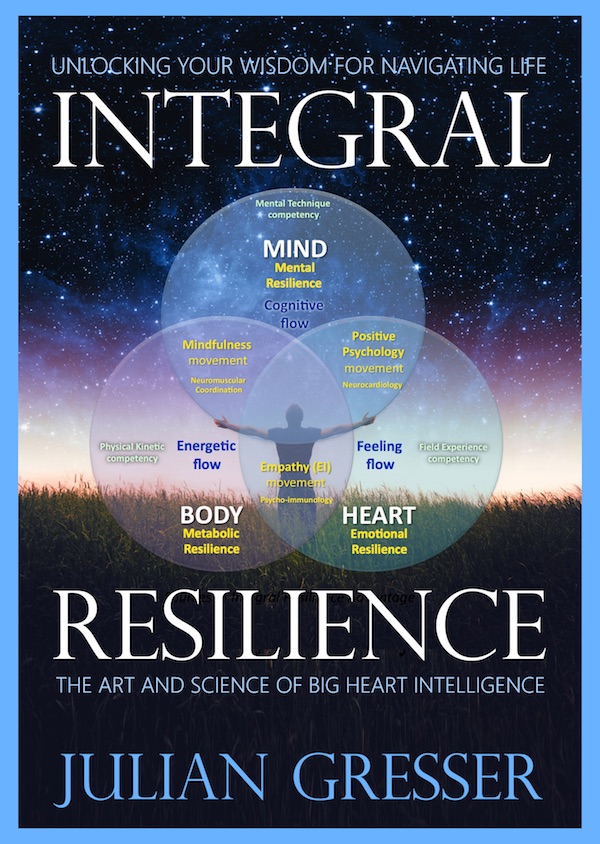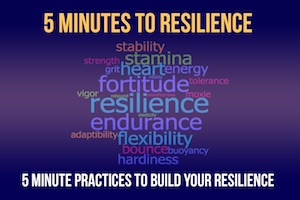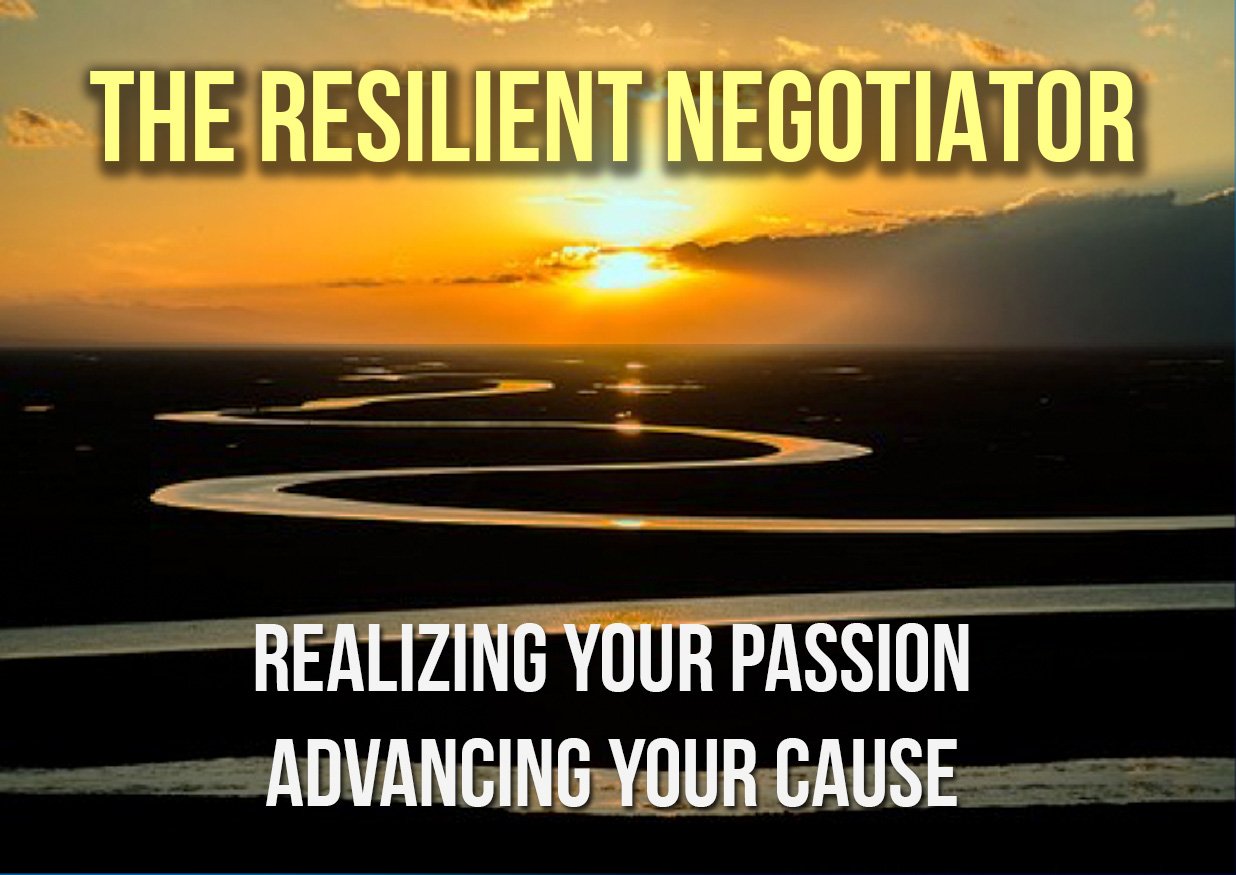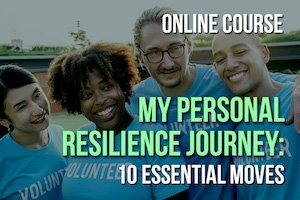Self-Care
“No amount of self-improvement can make up for any lack of self-acceptance.”
Robert Holden, Ph.D. author, psychologist, philosopher
Blue Cliff Record Case # 94 —Dongshan is well.
Dongshan was ill. A student asked, “You’re unwell. Is there someone, after all, who isn’t sick?” Dongshan said, “There is.” “Does the one who isn’t sick take care of you?” continued the student; “I’m actually taking care of that one.” Dongshan observed. “What’s it like when you take care of that one?” continued the student. “Then I don’t see that there is illness,” Dongshan replied.
Audio–Caring for That One
Actions:
- Simply enjoy being you.
- And make happiness a first priority in your life.
Resilience Advantage:
- When you can accept (love) yourself, you begin to love your life more deeply, no matter what happens; they are inseparable. Everything—inner and outer—suddenly shifts.
Reference Links:
- Robert Holden, Ph.S. https://www.youtube.com/watch?v=PjFNa59SHgo
- Stop, Look, Go-–https://vimeo.com/150279303
- Art Thou Troubled?- https://www.opera-arias.com/handel/rodelinda/art-thou-troubled/
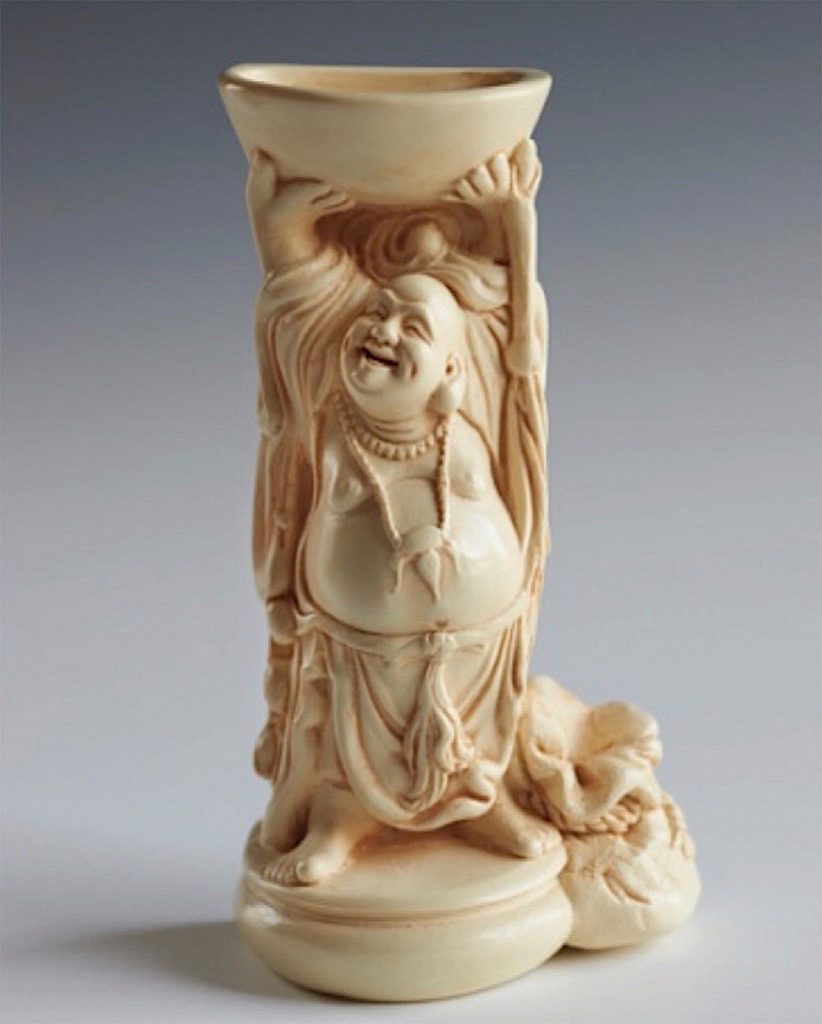
Caring for That One (Audio Transcript)
Is it possible to be fully engaged in the world and yet be free like Pu-tai, depicted directly above in all his glory? Pu-tai was a semi-historical Chinese monk who lived around the 10th century in the Wuyue kingdom. Pu-tai wandered the world aimlessly, unencumbered by earthly belongings and impediments, bringing joy and happiness wherever he traveled. I confess it is a bit Romantic for a lawyer and health justice advocate to fancy a part of himself like Pu-tai. Notwithstanding, I feel impelled to record my discoveries.
Self-care begins with happiness. But how to be happy? A basic step is simply to accept and enjoy being who we are. And from this root stems loving our life. When we enjoy simply being ourselves and loving our life, we are shielded from the buffets, disappointments, and reversals of life. We become what the psychologists call “field independent.”
But we cannot simply wave a wand and mandate loving our life. It is perhaps odd to think of it in this way, but it does seem for all those who don’t live a charmed life, as some do, where everything comes easy, that there actually are practical clues.
The first, at least for me, is to make happiness a highest priority. There is considerable scientific and empirical evidence that happiness is less a result and more an enabling cause. See for example, Shawn Achor’s 2010 best seller, The Happiness Advantage. How do we make happiness a first priority? Actually, this part is relatively easy. My friend, Masamichi Yamada, a Zen master and former Mitsubishi banker’s solution is simple: increase the “market share,” meaning consciously insist on preserving significant time in each day to be happy.
If I do not make happiness a first priority, I have found “busyness” takes over and I am caught in the undertow. But once I change priorities, I find there really is an inexhaustible treasure trove of life-affirming practices suited for this small space of time. Here are a few.
- Practice any of the 10 Essential Moves, especially Part I, Moves # 1-4. Quieting the Heart, Finding Your Power, Discovering Beauty, Connecting to Nature. Any one is sufficient. (www.alliancesfordiscovery.org)
- Practice Brother David’s Stop Look Go.
- Meditate, and if you like to work with koans to help focus your Mind, here are three of my favorites: the whole world is medicine; no picking, no choosing (originally a poem); the sound of one hand. Any one of these instantly transports me to a place of forgetting myself and deep happiness.
- Lastly, play. Reserve time simply to play; play with a loved one; play wherever your skipping spirit takes you; play for the sheer joy of it.
I have found it is also important in cultivating Self Care to learn to negotiate with the voices or subpersonalities that inhabit our psyches. We have many voices inside ourselves that like clanging instruments clamor for attention. Which one to believe? Which are our allies? Our adversaries?
I have made two useful discoveries. The first is we don’t need to believe our voices or the stories they tell us. In fact, almost all of the scary, anxious, persistently negative voices are simply untrue. If we are really honest with ourselves, we may find that when we examine these voices carefully and insistently ask of them, “How can I be certain you are true?” they run for the hills, like nocturnal hobgoblins exposed to the first light of day.
There is another relevant koan I find helpful in this context. The great Zen master, Zuigan, would interrogate himself,
“Master, Master,” he would ask.
And he would reply: “Yes, Yes!”
“Thoroughly Awake?” Zuigan would remind himself.
“Yes, Yes,”
Don’t be deceived by others,” he would caution.
“No, No!” Zuigan would reply.
Suffering can be seen in this light as a kind of distraction of mind. And the essential point here is we have in large measure a choice.
Of course, acquiring this degree of self-awareness for most of us takes time. But slowing down, patience, and kindness to ourselves are all essential qualities of Self Care.
Our discussion so far is mainly about the Sunny places. What about Self Care when the dark times come, during the typhoons of life? They touch all of us, rich and poor, the unlucky and the favored. And in the end, Death always holds the aces. But before that final moment, how do we Care for that One in these circumstances?
In Move # 9, Creating Your Own Luck, I refer to “Adversity’s Spiraling Wave Form.” In Hamlet, Shakespeare writes, “Sorrows come not as single spies but in battalions.” We descend, spiraling into dark places. And later in the play, “This is not the worst so long as we can say this is the worst.” How can we possibly care for ourselves and others when we face the worst?
Profound acceptance. We simply are. We hold steady; and we love. Love carries us through. But then there is one other secret: If we can accept what life brings our way with dignity, steadiness, and compassionate perseverance, I have found there will be a shift, a first glimmer, a shimmer of light. At first this shift may be subtle. We may miss it. For its voice is soft. But it is in the nature of things, everything is in flux; everything changes. When we detect this shift, we flow with it.
And here’s the secret: Paying forward. Paying forward means we pass on the joy of our wakening in a way that lightens the sorrows and burdens of others. In paying forward we reclaim our integrity and our power. The upward spiral gains momentum, and the Wheel turns. We find our power inside our pain. And then often, though not always, we arrive at Higher Ground from where we began our journey. After these many years I have evidence the universe may be disposed to be friendly.
………………………………………………………………………………….
©Copyright Julian Gresser/Big Heart Technologies, Inc. July 2019. This short essay is part of the 5 Minutes to Resilience ™ series available at: https://resiliencemultiplier.com/5m2r-details/; www.resiliencemultiplier.com.


